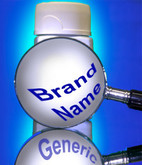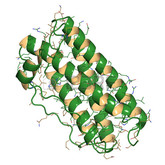Biosimilars
Survey among pharmacists shows high confidence for biosimilar substitution when same generic name is used
Approximately 75% of pharmacists indicated that they would be confident or very confident in substituting an interchangeable biosimilar with the reference product if both shared the same active ingredient or non-proprietary name of the reference biological, according to a survey published in JMCP [1].
Biosimilars of filgrastim
Last update: 22 January 2021
Filgrastim is a granulocyte colony-stimulating factor (G-CSF). Filgrastim treatment can be used to stimulate the bone marrow to produce more neutrophils (white blood cells) to fight infection in patients undergoing chemotherapy for cancer treatment.
Infliximab biosimilars tighten grip on European markets
The progress of biosimilars onto the European market continues apace with an announcement from Mundipharma that Remsima (infliximab biosimilar) is being launched in several major markets, including Germany and The Netherlands.
FDA approves its first biosimilar
The US Food and Drug Administration (FDA) announced on 6 March 2015 that it had approved Zarxio (filgrastim-sndz) injection, the first biosimilar ever to be approved in the US, for the five indications for which US-licensed Neupogen is approved. FDA found Sandoz’s Zarxio clinically comparable to Amgen’s blockbuster chemotherapy agent Neupogen (filgrastim), which is used to help prevent infections in cancer patients receiving chemotherapy.
Equivalent safety and efficacy of nephrology subsequent entry biologics in Canada
A review of efficacy and safety data for subsequent entry biologics (SEBs) used in nephrology practice in Canada has found little clinical difference between epoetin SEBs and the reference product. But while the clinical differences are minimal, argue the authors, the financial implications of a possible dose difference between epoetin zeta and the reference product should be considered in future pharmacoeconomic studies [1].
Huge discount on biosimilar infliximab in Norway
Norway’s price regulator has been offered a discount of 72% for biosimilar infliximab in the country’s latest tender for drugs.
Second Apotex biosimilar under FDA review
Canada-based Apotex announced on 13 February 2015 that the US Food and Drug Administration (FDA) had accepted for filing the company’s application for a biosimilar version of Amgen’s Neupogen (filgrastim).
What happened in biosimilars during 2014
Many new developments have taken place in the biosimilars industry in 2014 [1]. One of the most important milestones during 2014 was the news that the US Food and Drug Administration (FDA) had accepted several biosimilars applications, and had even recommended the approval of Sandoz’s filgrastim biosimilar in all five indications of the originator product (Neupogen).
Hospira launches infliximab biosimilar in major European markets
Injectable generics specialist and biosimilars maker Hospira announced on 16 February 2015 that it was launching its infliximab biosimilar, Inflectra, in several major European markets. Inflectra, a treatment for inflammatory diseases such as rheumatoid arthritis and inflammatory bowel disease, will now be marketed in 24 European countries, nearly doubling its presence across Europe.
Comparison of non-originator filgrastim with Neupogen finds no difference in neutropenia recovery periods
Results of an observational study found no difference in Biocad’s non-originator filgrastim (Leucostim) compared to Neupogen in the recovery periods for patients with chemotherapy-induced neutropenia [1].












